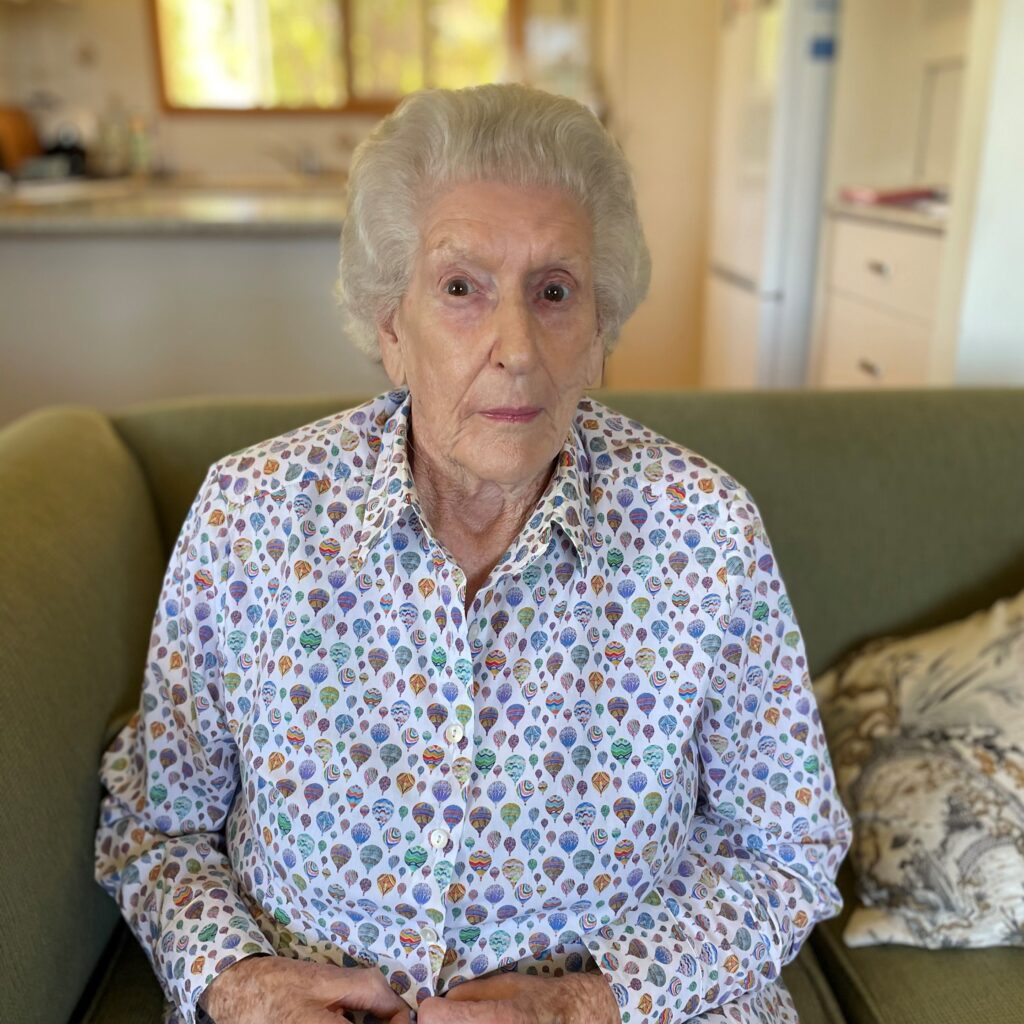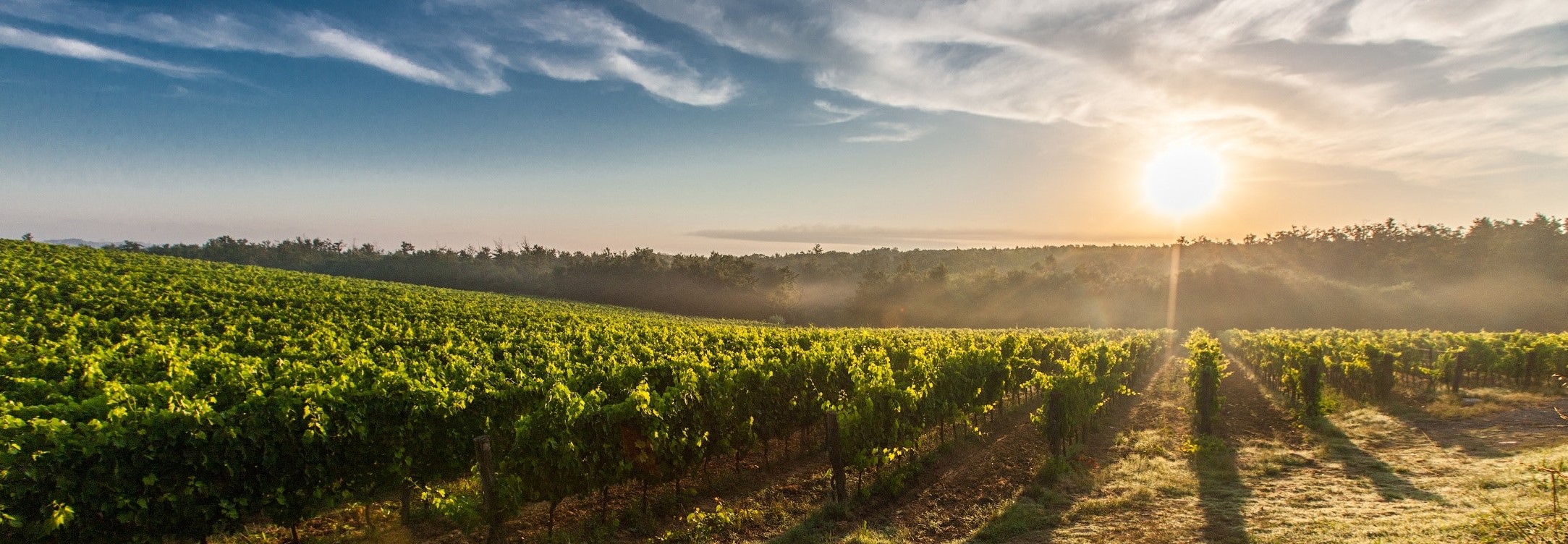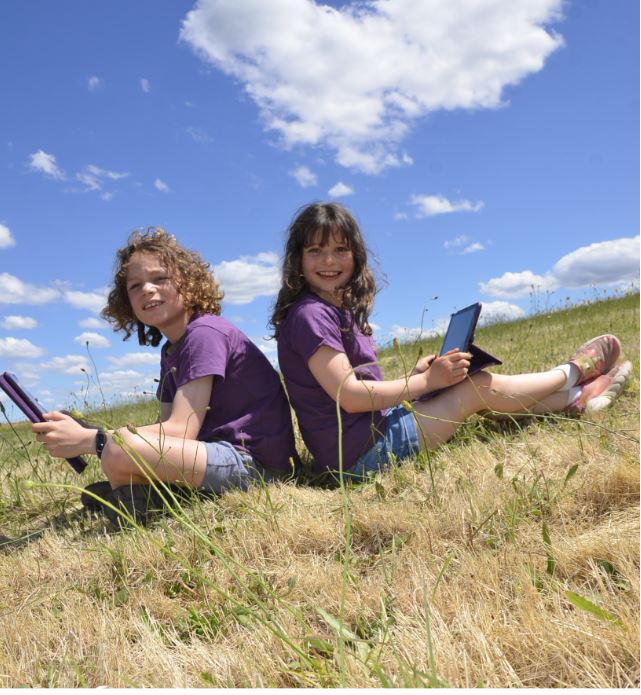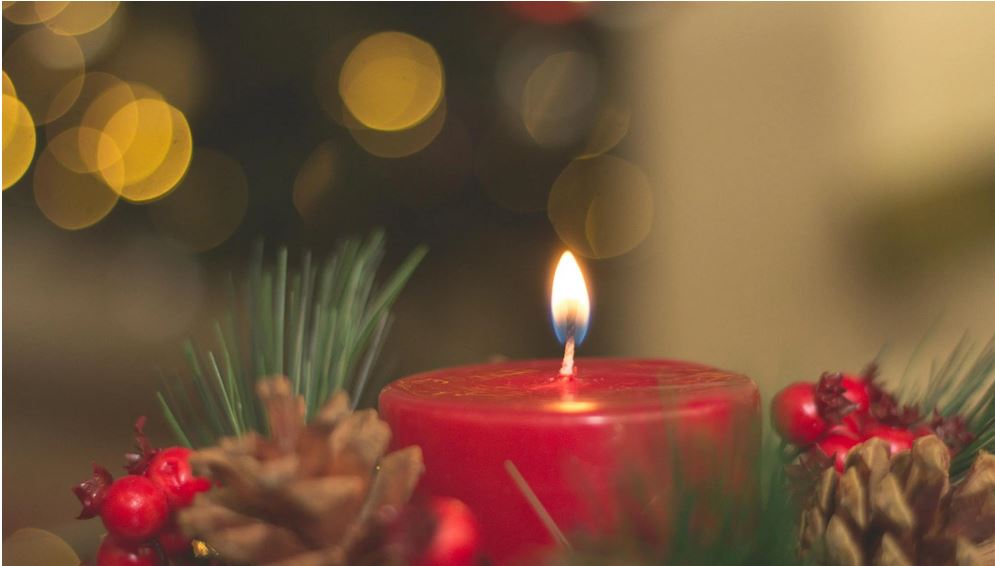December 20th, 2020Joan looks back on sowing her wild Oates
Take just one example. Over 80 years may have passed, but there is a day that she remembers with startling clarity.
She is 11 and just back from boarding school, at home at the family cattle and sheep farm. A bad heart has prematurely killed her father.
Eight bulls of all ages are fighting and must be separated, says her mother. Get your horses and do it. Joan and her 10-year-old sister Betty ride out, but a bull charges Betty and gores her horse Black from rear leg to stomach. “She just yelled out ‘Joan!’ and I raced down and grabbed her,” says Joan.
“We rode on my horse at great speed, the best we could, about half a kilometre, yelling out to my mother, ‘Get the gun! Get the gun!’ My mother didn’t hear or understand what we wanted. Anyway, I ran in and got the double-barrelled shotgun and went down and shot the horse.” That wasn’t the end. Picture two young girls then having to strip the dead horse and burn it from late afternoon into the evening and next day.

The starkness of Joan’s account as she sits in her neat-as-a-pin Hepburn home captures another time. “After that, whenever we came home for holidays, everything was organised for us to help with whatever was going on, whether it was shearing, making porridge and other meals for the shearers, dipping the sheep, branding or desexing the calves.” Skill with a knife and a red-hot poker perhaps equips one for life? She agrees.
The family farm was near what was then a mining town, Captain’s Flat, not far from Canberra. Enough gold was produced, she says, to pay all the miners’ wages. And then there was zinc, lead, copper and silver. Because the town lacked facilities, Joan was born in Sydney. “My mother and father weren’t young to have children in those days; I don’t think I gave her any complications when I was born, but I probably gave her problems later on in life.” She chuckles.
“My sister and I had a great life. Children today would probably think it was terribly, terribly boring, but we didn’t. We had no distractions, and then we went to boarding school when I was 11 and my sister 10. Until then, my mother taught us. She was a hard taskmaster; my father was the gentle one.”
Her father’s mother, “Granny”, lived with the family. “She was a lovely old lady. In those days, when people were widowed, they always wore black. It was just the thing that people did. She was a great person; she was always on my side. She used to wander, (she had Alzheimer’s, you would call it today) it was very hard and we’d all be out looking for Granny. She’d come back, because she was always going home.”
Joan chose to go nursing, training in Canberra before working in the obstetrics department at Sydney’s Crown Street Hospital. She abandoned her career when confronted with a very ill pregnant woman whose husband was given a choice: his wife’s life or that of their unborn baby. When he chose the baby, Joan left nursing forever. To her mother’s horror, she became a barmaid, working in a pub for a year. The resulting barrage of phone calls drew Joan’s response: “No, this is going to be it and I’m going to enjoy myself.”
During World War II, Joan’s father was convinced that Japan would invade Australia. He belonged to a group that believed invaders should be met with a scorched earth policy, with the burning of all the towns and land around Canberra, except the capital. She shows a book on this policy.
Once the threat of invasion was over, she was away from home and in her twenties when she married a young trucking business owner called Barry. He was to be run over and killed when Joan was pregnant with her second child. “I think I got through it because of my sister. She was always there for me.”
Later, Joan met Don Oates. They were together for 51 years until his death in March last year. “We had a wonderful life, a life of great joy, happiness and adventure,” although there were inevitably sad times.
One remarkable, almost unbelievable, event happened when her son Barry was just 11. He was very late home from school. When questioned, he said he had been to the office of Births, Deaths and Marriages in the city, where he managed to change his name to that of his stepfather. “I never knew my father,” Barry explained, never speaking of this again.
In taking this name he linked to Captain Lawrence “Titus” Oates, his stepfather’s great-uncle, the renowned Antarctic explorer who in 1912 sacrificed his life to give his three companions chances of survival.
Another Oates great-uncle was Richard, one of two prospectors who found Australia’s biggest alluvial gold nugget, the 97kg Welcome Stranger at Moliagul, about 15km kilometres north-west of Dunolly.
Life with her husband, says Joan, was marked by joy, especially because of Don’s wonderful friends. She and Don ran a liquor store. Once, they took all the family for Christmas at the renowned Boulevard Hotel in Sydney. They decided drinks for 30 would cost a bit, so young Barry was told to carry a suitcase of champagne and spirits. No offers of help from porters could persuade him.
After a glorious Christmas dinner, and while the others were sleeping it off, Joan looked out her window to the harbour only to see hundreds of soldiers and sailors rushing about. Turning on the TV she found Cyclone Tracy had struck Darwin. “That was a Christmas Day I remember vividly.”
Her road to Hepburn includes a time as a sales rep selling French perfume, such as Chanel. She also managed a French perfumery and worked front-of-house in an Italian restaurant. “I’ve always believed in being independent. I’ve had a rich and colourful life and enjoyed every bit of it.” She retired at 67 and has three grandchildren and five great-grandchildren.
The lure of Hepburn for husband Don was its resemblance to Tumut in the Snowy Mountains, where he worked for the old PMG’s department. For her, it brings to mind her childhood home. She is full of praise for the community here and the friends made in the 15 years she has lived here. “I probably wouldn’t have survived without them.”
Words & image: Kevin Childs










